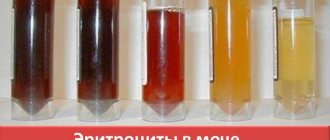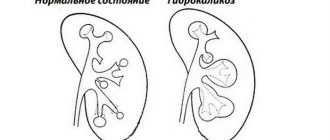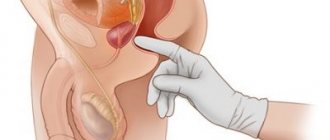01.08.2017
Every person who has encountered such a problem as inflammation of the bladder has repeatedly asked the question: “Is it possible to cure cystitis without antibiotics?”
There are many people who have a negative attitude towards antibacterial drugs, believing that they have a negative effect on the body as a whole.
Traditional medicine effectively copes with unpleasant symptoms, but can it cope with the infectious-inflammatory process?
Unfortunately, treating various inflammations without taking medications can lead to the disease becoming chronic.
As for cystitis, it can develop for infectious and non-infectious reasons. Infectious inflammation of the bladder is caused by various bacteria and viruses, and non-infectious inflammation is caused by improper hygiene of the genital organs, congestion in the bladder, impaired metabolism, sedentary lifestyle, changes in the body during menstruation, and others.
Most often, bladder inflammation begins due to bacteria. In such cases, treatment with Monural, Palin, Rulid, Furagin and Nitroxoline is necessary. Only such treatment can effectively combat the root causes of the disease.
For each patient, treatment is selected individually, depending on the type of provoking microorganism. To prevent the growth of bacteria, the doctor will prescribe appropriate antimicrobial drugs.
In any other case, it is possible to do without antibiotics. But it is worth remembering that the most effective and popular treatment is antibacterial.
Signs of the disease
It is quite easy to recognize cystitis by the first, most pronounced sign - painful urination. The symptoms of the disease are not limited to this; there are a number of other points by which the disease can be identified:
- A sudden and very strong desire to go to the toilet;
- False urges to go to the toilet;
- Burning when urinating;
- Frequent urge to go to the toilet, but urine is released in small quantities;
- Presence of blood in the urine;
- The smell of urine is unpleasant, the color is cloudy.
In children, one of the signs of cystitis is urinary incontinence even while awake.
When you can't get by
Inflammation of the mucous membrane of the genitourinary system is often associated with the ingestion of E. coli, streptococci or staphylococci. Pathogenic bacteria multiply quickly, causing burning, itching and sharp pain in the groin. If cystitis is caused by an infection, then there is no way to get rid of it without antibiotics.
The main danger is the latency and asymptomatic nature of bacterial cystitis. Frequent urge to urinate, pain in the lower abdomen, burning sensation - although disturbing, they pass quickly, so patients do not pay attention to obvious signs of pathology. Starting and ignoring the inflammatory process is fraught with serious consequences. Women may face kidney disease, miscarriage, the birth of a physically weak child, men are at risk of problems with sexual function and the development of prostatitis.
Therapy for infectious cystitis involves the use of the following categories of drugs:
- Antibiotics with a pronounced antimicrobial effect - Furadonin, Monural, Suprax - suppress the growth of the number of harmful microbes.
- Uroseptics - penicillins, fluoroquinolones, macrolides - have diuretic and antibacterial properties, are excreted by the kidneys, and do not have serious side effects.
- Antispasmodics - Drotaverine, Drotaverine chloride - eliminate muscle cramps.
- Toning and restorative - Geriforte, Ginseng root - help restore expended strength, relieve fatigue and stress.
- Vaginal suppositories and tablets for venereal diseases will be needed when cystitis occurs in parallel with venereal pathologies and candidiasis.
What to pay attention to
If the disease is accompanied by at least one of the following symptoms, you cannot do without antibiotics:
- an increase in body temperature to 37 °C and above, which is accompanied by fever;
- excruciating pain in the lower abdomen, radiating to the perineum, sacrum, lower back, leg;
- change in urine color - becomes cloudy or pink, in the second case due to mixing with blood;
- frequent remissions;
- presence of pus in urine;
- herbal medicine and other treatment methods do not give the desired result even after long-term use.
Antibiotics effectively eliminate the disease, but have a number of side effects. Antibacterial therapy is contraindicated in pregnant and lactating women. With prolonged use they can cause stress and negatively affect the functioning of the liver and gastrointestinal tract.
Help with the first symptoms
Of course, at the first symptoms of cystitis, you need to run to a doctor or call him at home. But what can you do before visiting a doctor to relieve pain? The main thing to do in the first time of illness is to drink plenty of fluids. This will help remove the infection from the urine as quickly as possible. It is recommended to drink warm fruit drinks every 30 minutes. Preferably from berries such as lingonberries or cranberries, because... they do not allow the infection to gain a foothold in the body.
Every three hours you can drink warm water with baking soda. This drink allows you to slightly relieve the painful burning sensation when urinating.
A warm bath with potassium permanganate will also help relieve the pain. Or a heating pad (a bottle of warm water) applied to the lower abdomen; this method is also practiced as first aid for cystitis.
Is it possible to cure cystitis with Urolesan, Canephron and other similar medications?
In this case, the answer is unequivocal - it’s impossible. Urolesan, like herbal medicines like it, is only an adjuvant that will help enhance the effectiveness of other medications. Studies have already been conducted in which it was proven that such drugs in combination with synthetic medications were able to relieve the symptoms of the disease much faster and alleviate the condition of patients. Single use of herbal preparations will not give the desired result.
On the other hand, if there is a suspicion of cystitis, pyelonephritis and other inflammatory pathologies of the urinary system, then at the first sign it is necessary to take these medications. They will not cause harm, but will help and support the body.
Is the use of antibiotics necessary?
Many people faced with an unpleasant disease will ask themselves: is it possible to do without antibiotics? Treatment of cystitis with antibiotics is always at the discretion of the attending physician. But, nevertheless, with severe pain and fever, doctors prefer antibiotics. Because Mild cystitis can develop into a chronic disease, and in the worst case, bladder cancer can develop.
Most often, cystitis is managed without potent drugs and is treated with herbal medicines or even folk remedies.
Treatment of chronic cystitis
It is important to understand that with chronic cystitis, the addition of a bacterial component is a fairly common occurrence. Therefore, the use of antibiotics in most cases is necessary, and self-medication can lead not only to severe, but irreversible consequences.
Drug therapy for chronic cystitis, in addition to antibacterial drugs, includes the following:
- NSAIDs;
- hormonal preparations of the adrenal cortex;
- antispasmodics;
- herbal preparations;
- immunomodulators.
Important! Chronic cystitis requires long-term treatment using various types of drugs. It is impossible to cure pathology only with herbal remedies.
In addition to the main treatment, the patient is asked to switch to a lighter and gentle diet without salt. Depending on the results of urine tests, the doctor can select a special list of products that will be beneficial for this condition, and will also help, if possible, eliminate the cause of cystitis.
Herbal preparations
Herbal medicines for the treatment of bladder inflammation are very diverse. Some of them are diuretics, due to which the infection is eliminated from the body. Some products maintain an acidic environment and prevent harmful bacteria from multiplying. The third group of such drugs has an antibacterial effect.
Important! You should not self-medicate, because... Incorrectly selected medications can allow the disease to develop into cancer.
Based on the tests, the attending physician will formulate a competent treatment, thanks to which the infection will be removed from the body without dire consequences for the patient.
Cyston
Cyston is an antimicrobial herbal preparation. For cystitis, it also has an analgesic effect and reduces the frequency of urination. Available in tablet form. The dosage is prescribed by the doctor. The treatment period will range from a week to complete recovery, which can take several months. Prescribed as an additional agent that enhances the effect of the antibiotic.
After complete recovery, the doctor may not rule out taking the drug for a few more weeks, because it will help restore the mucous membrane of the bladder, while also having a preventive effect on the body, preventing relapses of repeated inflammation.
Canephron
For cystitis, it is most often prescribed as an adjuvant medication for antibiotics, especially in severe cases of the disease (with severe pain and fever). It will act as an independent drug in case of chronic cystitis. Its antibacterial effect is no less effective than that of antibiotics, but to achieve results it is necessary to use the drug according to a certain scheme.
Canephron relieves pain, urination becomes less frequent, and relieves replenishment. It is well tolerated by patients. Available in the form of drops or tablets, the dosage and course are determined by the attending physician.
Phytolysin
Phytolysin is a drug that will not give results as the only treatment for cystitis. It is prescribed only in combination with antibiotics, because Phytolysin enhances their effect. It is impossible to cure cystitis without antibiotics using this drug alone. In addition, it helps relieve pain and burning during urination, has a general anti-inflammatory effect and is a diuretic.
Available in the form of a paste with a specific smell and taste. Take the medicine in accordance with the instructions for use, the duration of use is determined by the attending physician.
Urolesan
Urolesan drops are considered first aid for cystitis. Partly due to its natural composition. But the herbal drug will not be a monotherapy; it is prescribed together with an antibiotic, having a beneficial effect on organs close to the bladder. At the same time, there are reviews that claim that Urolesan, as the only medicine, helped cope with the disease.
Important! The drug has side effects that may be a contraindication for use. Before use, consult a doctor.
Release form: capsules or alcohol tincture. The duration of taking the medicine is from 5 days to a month, at the discretion of the doctor.
Monurel
A potent herbal remedy for the treatment of cystitis. Monurel is very similar in name to the antibiotic Monural, but you should know that their composition is completely different and, therefore, the effect is also different. Monurel helps destroy harmful microbes, and the ascorbic acid contained in the composition increases the body's resistance to various types of viruses.
The medicine is taken one tablet once a day, at night. The duration of taking the pills is determined by the doctor, but you should not expect less than a month of taking the medicine.
Diet
If the bladder is inflamed, the diet should include more fluids and natural foods.
Recommended:
- fruit drinks;
- compotes;
- still water;
- Herb tea.
It is necessary to eat fruits and vegetables that have a diuretic effect (melons, watermelons, carrots, cucumbers).
Fermented milk products (cottage cheese and non-sour and unsalted cheese) are useful for restoring normal microflora.
Lean meat and river fish are best steamed to preserve nutrients.
Honey and bee products in reasonable quantities are useful.
The exclusion of spicy foods, preservatives, carbonated drinks, strong tea and coffee, aromatic additives, food coloring, smoked, fried and salty foods is required.
Immunomodulators
Potent drugs, in any treatment of a disease, require taking medications that will have a beneficial effect on the human immune system. For cystitis, immunomodulators are a necessary part of treatment.
Immunomodulators have actions such as:
- reduce inflammation;
- relieve intoxication of the body;
- help speed up recovery.
Immunomodulators are also used to prevent chronic urinary tract diseases.
Medicine notes that even with long-term use of such drugs there are no side effects. You can start using this group of drugs from the first signs of the disease.
There is a large selection of such drugs in pharmacies; the attending physician or pharmacist will suggest a remedy that will be most effective in a particular case.
Drugs that normalize the functioning of the immune system are necessary for acute inflammatory processes. But even during prevention, the drugs cannot harm.
Uroseptics of natural origin
To combat cystitis, doctors often use herbal medications. They can not only relieve the patient from unpleasant symptoms, but also eliminate the inflammatory process in women.
Uroseptic is an antibacterial agent that creates a sufficient level of concentration of active substances in the tissues of the genitourinary system and in the urine. This allows you to effectively fight microorganisms that provoke the inflammatory process.
Traditional uroseptics include:
- wild rosemary;
- cranberry;
- juniper;
- cowberry;
- bearberry;
- chamomile;
- thyme;
- St. John's wort.
Decoctions and infusions are prepared from the above herbs. To prepare a medicinal drink, you need to pour 40 grams of the dried mixture with half a liter of boiling water and let it brew for 2.5 hours.
You can prepare lingonberry decoction or infusion separately. For this, both the leaves and the berries themselves are used. This plant has bactericidal properties. The only thing is that doctors do not recommend using lingonberries for home treatment for patients with diseases of the bile ducts and liver dysfunction. When lingonberries enter the human body, active production of bile may begin.
Cranberry is a kind of natural diuretic that has an anti-inflammatory and bactericidal effect. When a patient drinks cranberry infusions, the level of urine excretion from the body increases, thereby washing away pathogenic microflora. The patient will quickly notice a positive result and all you need is a glass of cranberry juice.
The pharmaceutical industry produces chamomile, wild rosemary and St. John's wort in tablets, which are also very convenient and effective.
Folk recipes
Treatment of cystitis with traditional medicine has its place, because it is not for nothing that our ancestors passed down recipes for recovery from generation to generation.
Important! Before using folk remedies, it is necessary to consult a doctor and diagnose the disease.
The most common type of treatment for cystitis among the people is red brick. The building material is divided into two parts and heated well over a fire, after which the brick halves are placed in a bucket. They cover the edges of the bucket with a thick thick cloth and, without clothes, sit on the bucket and cover themselves with a warm blanket. As soon as the heat stops, a person needs to get dressed and go to bed. They claim that after three sessions even chronic cystitis goes away. Especially the treatment of cystitis in women in a similar way occurs in 1-2 times.
Various tinctures and fruit drinks help well:
- Horsetail has earned respect in the treatment of genitourinary diseases. For cystitis, add 2 tablespoons of herb to a liter of water and boil for 10 minutes. Strain the broth and drink one glass three times a day;
- Natural juices and fruit drinks made from cranberries and lingonberries help a lot. There is no need to write a recipe for making fruit drinks; it is well known to all housewives;
- Aspen buds in the amount of 100 g. steam with a liter of boiling water and infuse in a thermos. By consuming two spoons three times a day, the disease will pass faster than expected.
The treatment of cystitis is not limited to these recipes; there are many more options for using medicinal herbs and handy remedies.
Traditional medicine treatment is widespread. However, it is necessary to remember that infectious diseases require examination by qualified specialists.
Treatment of cystitis occurs fairly quickly if you consult a doctor in a timely manner and receive proper treatment. But in each individual case the drugs will be different. Some will need antibiotics to recover, while others will get by with herbal medicine. To avoid unwanted illness, it is best to undergo periodic medical examinations, get tested and carefully monitor your health.
Complicated form
The main problem of the disease is relapse. In 90% of cases, visits to medical institutions by women with repeated episodes of the disease are associated with reinfection.
How to cure cystitis without antibiotics if the sources of inflammation and infection are bacteria? The intestinal microflora that causes cystitis is called uropathogenic. Penetrating from the anus to the mucous membrane of the genitourinary tract, bacteria are able to attach to the mucous membrane, rise higher up the urethra into the bladder and multiply in the thickness of the wall of the organ, causing inflammation.
The unfavorable factors listed above, as well as the characteristics of the female body, contribute to the occurrence of relapses of acute cystitis. It is impossible to exclude anatomical and physiological reasons for the development of the disease.
The increased urine flow is not able to wash away bacterial colonies. The worst prognosis for untreated cystitis is kidney infection, pyelonephritis and acute renal failure.










